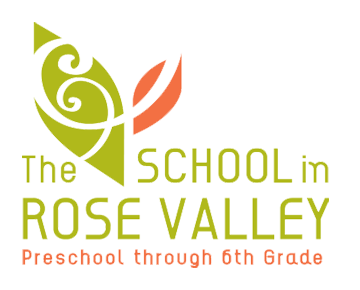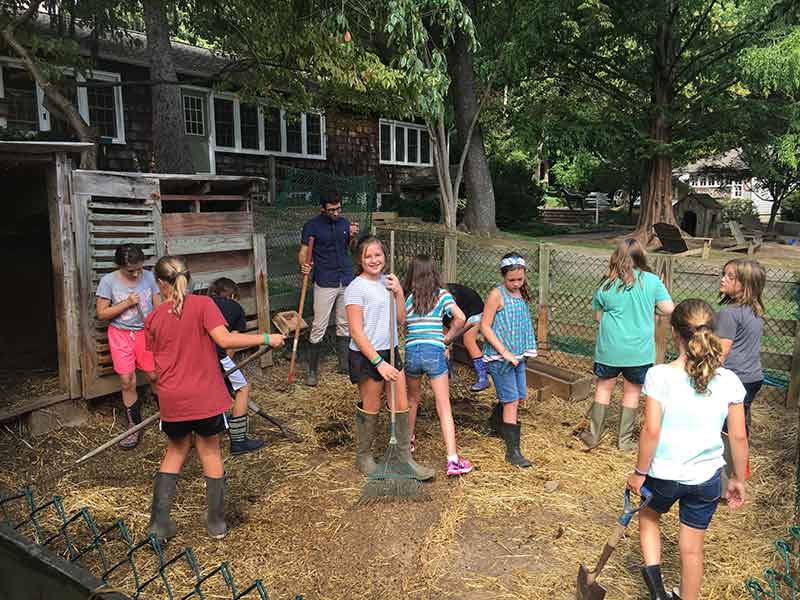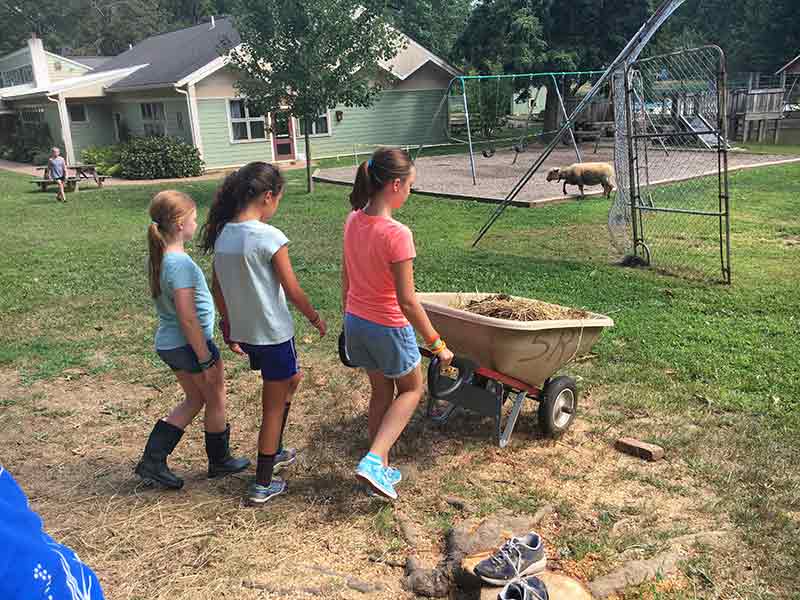Learning and Experiencing Community Traditions
“Pass the pitchfork!” a student calls from inside the pen; standing with a smile, as beads of sweat begin to collect under their headband. The pen itself isn’t very big so, while waiting to get the tool, they’ve got their wits about them; being sure not to interrupt the dance of rakers and shovelers. The aroma of hay and mud is stirred around, to about nose-level and with no regard to it, they continue the work at hand.
Mucking the sheep pen is a long-standing tradition of the Oldest Group here at The School in Rose Valley. Coming into this year, I had previously watched the group from afar and had imagined it to be pretty simple: Step 1 – Rake muck into a pile. Step 2 – Shovel muck into wheelbarrow. Step 3 – Wheelbarrow contents to compost and repeat. So when I ‘booted up’ on the first day of school, I was able to look at the job with a new perspective.
There was no pre-lesson on How to Muck the Sheep Pen, there was no teacher-delegation of roles or jobs, we did not hand the students plastic or replica tools, and nobody asked to sit-out. The 6th graders were teaching the 5th graders their best-practice for dividing up the pen; incorporating mathematical thinking and spatial awareness. Everyone was able to choose a task that best suited their comfort and ability; while some got dirty, others leashed the sheep, while others yet washed the water pail.
This type of work, is an intricate learning opportunity for our students; to be engaged with their community in a tradition that encourages them to work together, to reach a common goal. It is also a direct introduction to agriculture and sustainability; concepts that have returned from being in the peripherals of our cultural worldview. As Ecologist David Orr writes:
“ Ecological sustainability will require a patient and systematic effort to restore and preserve traditional knowledge of the land and its functions…This is as much a process of rediscovery as it is of research.”
– David W. Orr (Prof. of Environmental Studies, Oberlin College)
The path to ecological literacy stems from traditional knowledge of the land. This traditional knowledge is kept by the children of the Oldest Group, who year after year “pass the pitchfork” down from class to class; and effectively pass with it an appreciation of the sheep, the school and each other.

We cannot teach this type of real knowledge, and the more we understand that, the more our mission as a school becomes clear. Allowing ourselves, as teachers, parents and students, to recognize that the rich nature of learning occurring here is directly linked to our commitment to experiential learning (ie. hands-on and active). If we continue to value traditions as opportunities for our children to grow , not only as pupils but as people, we may begin to see the work and play they do as essential in their development as children and young adults.
1. Orr, David W. Ecological Literacy. State University of New York Press, 1992, pp. 32 – 33.



